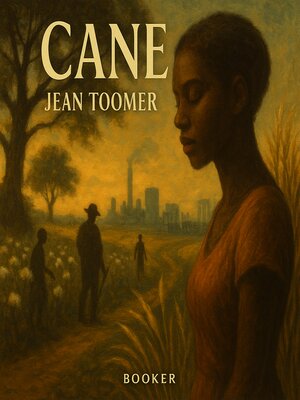
Sign up to save your library
With an OverDrive account, you can save your favorite libraries for at-a-glance information about availability. Find out more about OverDrive accounts.
Find this title in Libby, the library reading app by OverDrive.



Search for a digital library with this title
Title found at these libraries:
| Library Name | Distance |
|---|---|
| Loading... |
This audiobook is narrated by a digital voice.
Cane by Jean Toomer is a groundbreaking work of modernist literature that blends poetry, prose, and drama to depict the lives, struggles, and spiritual resilience of African Americans in the early 20th-century United States. Published in 1923, Cane is widely regarded as a foundational text of the Harlem Renaissance and a visionary exploration of Black identity, memory, and place.
Structured in three parts, the book moves from the rural South to the urban North and back again, mirroring the Great Migration and the dislocation it created. Toomer weaves together lyrical portraits of Southern Black life—rich with spiritual symbolism, folk traditions, and natural imagery—with stark and fragmented narratives of modern urban alienation. His characters grapple with race, gender, desire, and the elusive search for wholeness in a divided America.
Through its experimental form and hauntingly poetic language, Cane challenges conventional literary boundaries and elevates the experiences of Black Americans to universal significance. Its powerful vignettes—such as "Karintha," "Becky," and "Blood-Burning Moon"—offer intimate glimpses into complex inner lives shaped by historical trauma and cultural beauty.
Both a celebration and a lament, Cane remains a profound meditation on identity, legacy, and the soul of a people. It is as innovative in structure as it is emotionally resonant, securing Jean Toomer's place as a unique and transformative voice in American literature.







